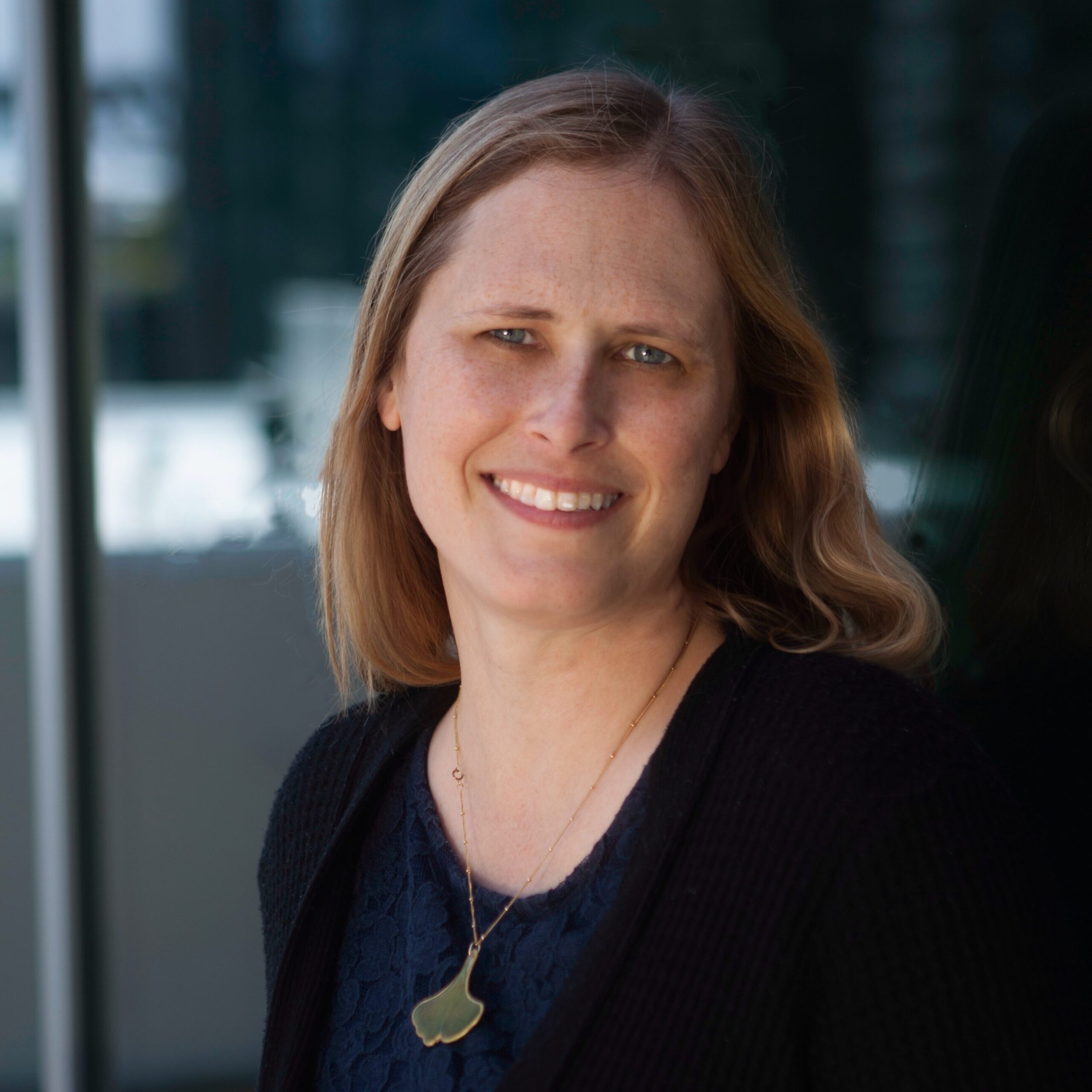
Skills-based volunteers use their business acumen and specialized expertise to help mission-driven organizations optimize their operations and amplify their impact. We spoke with longtime volunteer Wendy Cown, Director of User Experience at Charles Schwab, about her work with the Arizona Council on Economic Education (ACEE), how the project impacted her professionally, and how every corporate professional can make a tangible impact.
“Skills-based volunteering gives me another opportunity to explore who I am in a professional context.
It allows me to bring more of myself to work, stretch my skills in new areas, and gain confidence in areas
outside my core expertise.”
Common Impact was fortunate to have your expertise and perspective on a recent skills-based project with the Arizona Council on Economic Education (ACEE), a nonprofit that drives systematic financial inclusion by empowering teachers and educating over 200,000 students from public, private, charter, home, tribal, and juvenile detention schools annually. What was the challenge you were collaborating on, and how did you use your professional skills to solve it?
ACEE came to the table looking for assistance improving its email newsletter to donors and volunteers. We on the Charles Schwab side were a team of email marketing novices and went in uncertain of how we could help. We all agreed to trust in the process and embrace the messy. Fortunately for me, I’m a design thinking facilitator, and the messy creative space is something I’m comfortable with.
My team and I spent the first session talking with ACEE President & CEO Elena Zee and her communications team, Monica Martinez and Jenni Petersen. We came to more deeply understand where they were, where they wanted to go, and the opportunity in front of us. The design thinking exercises and collaborative working style brought out our hidden strengths. In early sessions with the ACEE team members, we used a virtual whiteboard tool to lay out sticky notes with points we heard from the group in order to form a project overview, areas to explore, and key objectives and outputs. This was the foundation for my team’s later working sessions without ACEE.
We reviewed the different newsletter audiences and a few key characteristics for each, then wrote a problem-solving statement using a “how might we” format. These two warm-ups helped us align as we went into our brainstorming session where we generated 30+ ideas. We did a quick vote and identified the ideas with the most potential to help ACEE accomplish its vision. This took about an hour, and we felt ready to divide and conquer, each volunteer taking the lead on a piece of the work.
Working collaboratively helped us achieve something far greater than the sum of our parts.”
Every one of us had a secret skill that made us stronger together than we were as individuals. For example, we all contributed email newsletters we receive from nonprofit organizations and discussed what we find compelling about them. One of the volunteers was a whiz at organizing this into a presentation that broke down what elements were strong in each newsletter and why. I brought my user experience skills and created some basic email template designs. Another team member who works in data analytics had a keen sense of brand and voice and used that knowledge to make recommendations on content strategy. Working collaboratively helped us achieve something far greater than the sum of our parts.
From your experience, what sets skills-based volunteering apart from more traditional volunteer experiences?
With skills-based volunteering, I’ve found that it isn’t always my most obvious or strongest skill that is needed, but some part of what I bring to my job day in and day out. In a lot of the traditional volunteering experiences, it’s more about being an extra pair of hands to make work light. That is fulfilling and has a start and stop time. With skills-based volunteering though, I get more engaged, resulting in a stronger relationship between me and the organization as well as my Charles Schwab team.
How has skills-based volunteering impacted you in your day-to-day work or your career at large?
Skills-based volunteering gives me another opportunity to explore who I am in a professional context. It allows me to bring more of myself to work, stretch my skills in new areas, and gain confidence in areas outside my core expertise. And I get to meet people at Charles Schwab who I don’t usually have the opportunity to interact with, which always brings positive outcomes.
What would you tell someone new to skills-based volunteering? Why should they give it a try?
You have something to offer that these organizations need. Every time I participate, I’m not sure what I’m going to be able to offer the organization, but showing up and listening and being open to working with the team, I find there’s always something needed from each volunteer. It may feel “small,” but it isn’t; every single person I’ve been on a team with has done something critical for the success of the project. And this benefits these worthy organizations and the people they serve. It’s a great feeling.
Learn more about Charles Schwab’s skills-based volunteering work and support ACEE by making a donation or signing up for its newsletter.


